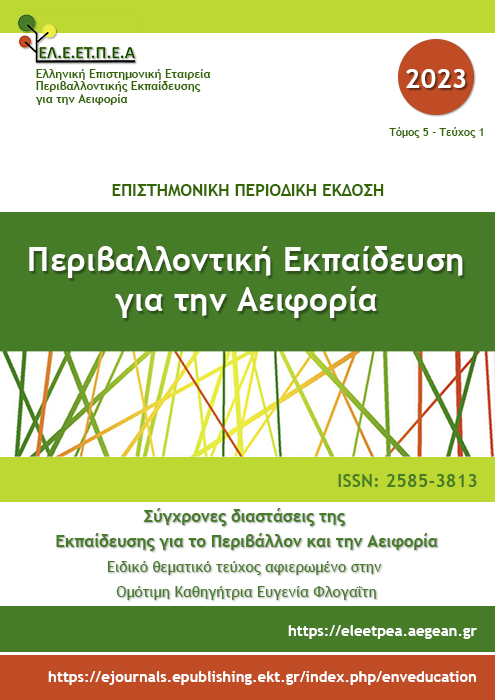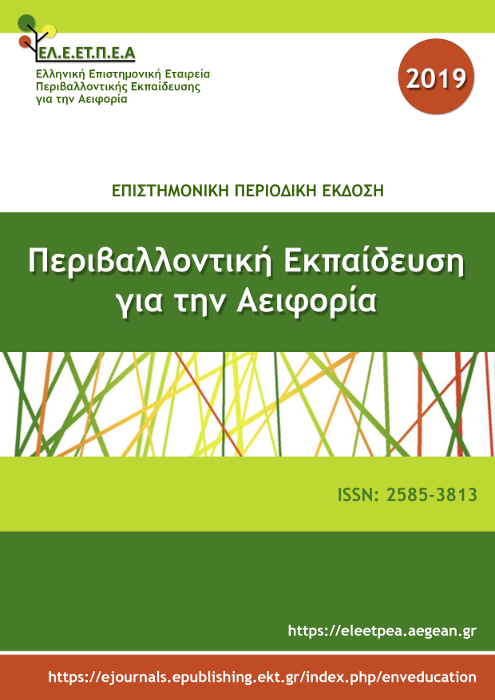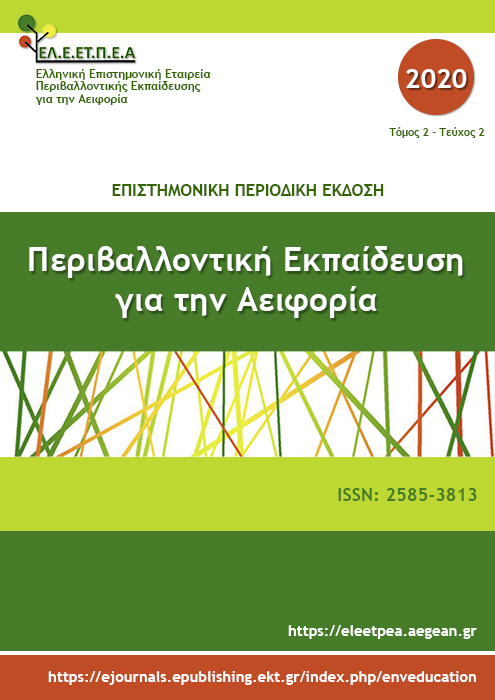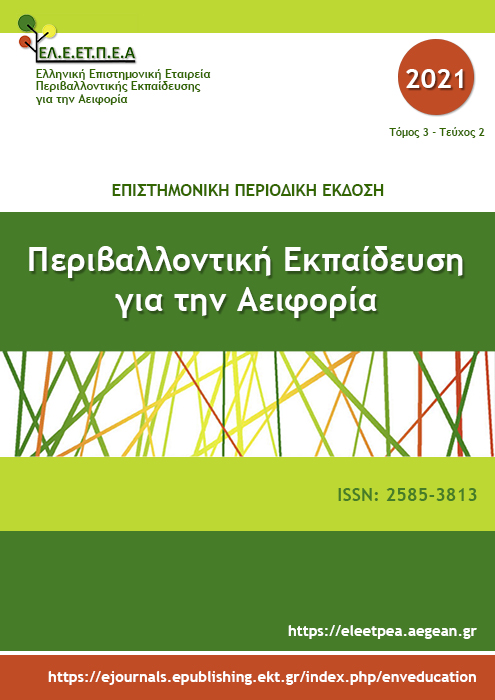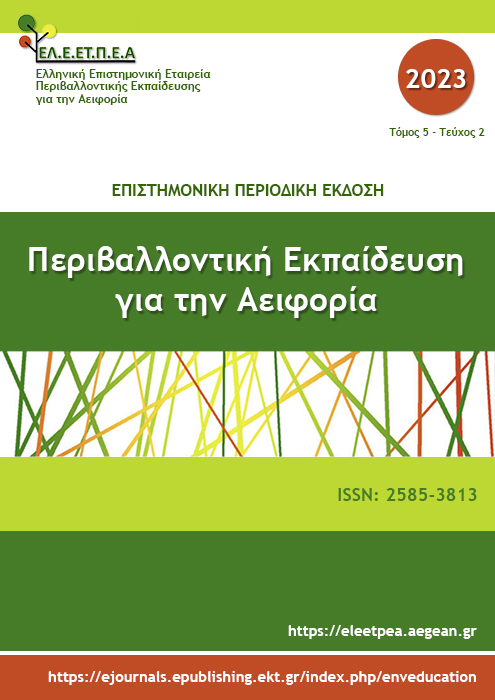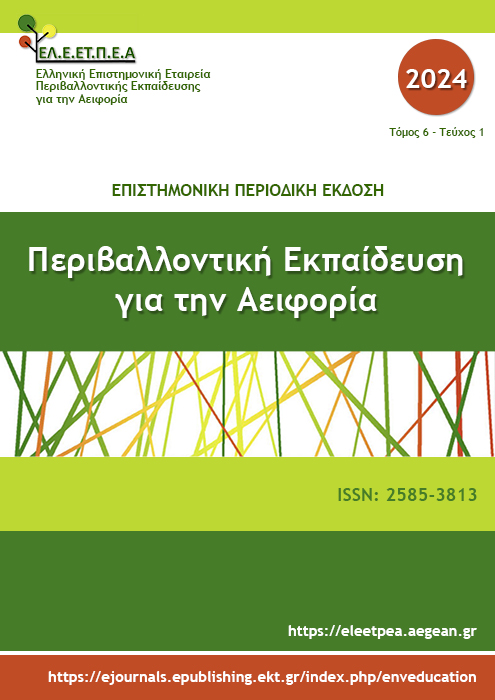H κλιματική κρίση ως «φαύλο» πρόβλημα και μαθησιακό αντικείμενο. Θεωρητικές, ερευνητικές και διδακτικές επισημάνσεις με άξονα την εκπαίδευση για την κλιματική αλλαγή
Abstract
All fields of action against current climate crisis require the adoption of inclusive and transformative perspectives towards sustainability. Education in particular is acknowledged as a central agent for adopting and promoting such an orientation, through enabling conceptual understanding of climate crisis and the challenges it entails, as well as activating and empowering individuals and communities to address it. Drawing on and expanding the theory and praxis of Environmental Education and Education for Sustainable Development, within which climate change education was born and is embedded, we argue that it is an opportunity to revisit their axes of thinking and to highlight new foci for educational theorizing, research, policy, and practice. In this article we consider climate change as a distinct socio-environmental issue and learning object with the characteristics of a “wicked” problem, the conceptual, cognitive and affective processing of which seems to run up against a number of internal psychological mechanisms and barriers. We use theoretical analysis and research evidence to illuminate aspects and dimensions of human engagement with the challenges posed by climate change and to identify and propose a framework of teaching and learning guidelines in terms of educational design and methodological choices that ensure compatible and appropriate pedagogical approaches and more authentic learning experiences for climate change education.
Article Details
- How to Cite
-
Δασκολιά Μ. (2023). H κλιματική κρίση ως «φαύλο» πρόβλημα και μαθησιακό αντικείμενο. Θεωρητικές, ερευνητικές και διδακτικές επισημάνσεις με άξονα την εκπαίδευση για την κλιματική αλλαγή . Environmental Education for Sustainability, 5(1), 48–65. https://doi.org/10.12681/ees.35760
- Section
- Articles

This work is licensed under a Creative Commons Attribution-NonCommercial-ShareAlike 4.0 International License.
Authors retain copyright and grant the journal right of first publication with the work simultaneously licensed under a CC-BY-NC-SA that allows others to share the work with an acknowledgement of the work's authorship and initial publication in this journal.
